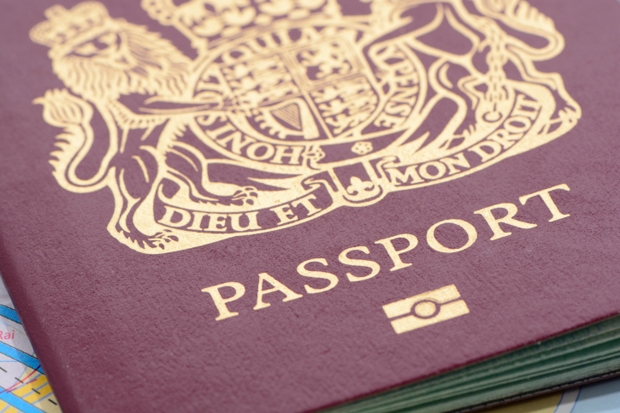It is surely only a matter of time before someone with a mischievous glint in their eye invites the Labour MP for Bishop Auckland, Helen Goodman, to open a fête in a place with which she is entirely unfamiliar, e.g. Bishop Auckland.
Helen recently turned up as guest of honour at a fête in a village in the constituency she has represented for nine years. She delivered a moving eulogy to Ingleton, praising its beautiful waterfalls and deep, labyrinthine caves. The villagers listened with a dawning hilarity. Mrs Goodman had confused the village she represents with one of the same name some 70 miles away in the Yorkshire Dales. There are no caves or waterfalls in Ingleton, Co Durham. In my imagination I can see her right now standing on the steps of Bishop Auckland’s Victorian town hall, offering a stirring tribute to the town’s natural attractions — magnificent harbour, ring of splendid fiery volcanoes, and vibrant and colourful Maori community.
Goodman was selected as Bishop Auckland’s Labour candidate in 2005 via an all-women shortlist, which is one of the conduits for preventing local people getting selected (there are plenty of others). Across the north-east, once the bedrock of Old Labour, Blairite monkeys, wonks and dweebs with no connection to the area were parachuted into safe seats in the 1990s and 2000s — the most hilarious of all, of course, being Peter Mandelson smirking triumphantly at the poor people of Hartlepool.
The exclusion of local politicians is one of the reasons that the British people, outside London, have lost faith in their MPs and consider them somewhat out of touch. Not all quite as magnificently out of touch as Helen, mind, but in general disregarding of their wishes and aspirations. This was the conclusion of the latest British Social Attitudes Survey, out this week, which reported a considerable hardening of public opinion about immigration — ‘a persistent public anxiety’ which the politicians will ‘ignore at their peril’, as well as a growing rejection of the multicultural vision of Britain.
The percentage of people who believe that in order to be classified as British one ought to have a bit of a grasp of the English language has risen from 85 per cent to 95 per cent. Some three quarters of the population wish to see strict limits, or a complete halt, to immigration, and 80 per cent want to see immigrants having only restricted access to welfare benefits.
In another marked change, growing numbers of these horrible, racist, bigoted Brits (as I daresay Gordon Brown would define them) also believe that in order to be truly British one ought to have some form of British ancestry or at the very least have been born in the country. Lordy. The suggestion is that while we were more inclined to be tolerant and even magnanimous towards incomers when they arrived at a reasonable rate every year, we have latterly become agitated to the point of intolerance by what could quite reasonably called ‘swamping’. It is not simply the pressure on our infrastructure — to which Labour’s latest response, incidentally, is that we should simply pave over what remains of our countryside and fill it with houses, if I understand Sadiq Khan correctly — or even our economic indulgence in the form of welfare benefits and subsidised housing. It is a deeper fear that the character of the country is being changed, and being changed with some rapidity, and that our political masters, with whom we have nothing or little in common, are perfectly happy with this state of affairs and indeed wish to encourage it. That they wished to encourage it is not in any doubt; you will remember Tony Blair’s former adviser Andrew Neather reporting that Labour opened up the country to mass immigration precisely to ‘rub the right’s nose in diversity’. I think Mr Neather was using the word ‘right’ as a synonym for ‘overwhelming majority of the population’.
The multicultural mindset to which people are becoming increasingly antagonistic was exemplified back in the late 1990s in a report from the Commission for the Future of Multi-Ethnic Britain, sponsored by the Runny-mede Trust. This barrel of pigswill insisted that Britain’s history should be ‘re-imagined’ so as to be more ‘inclusive’ and that a lot of the stuff which made British people proud of being British was in fact horrible and should be consigned to the wastepaper bin of history. Here’s an excerpt:
‘The Rule Britannia mindset, given full-blown expression at the Last Night of the Proms and until recently at the start of programming each day on BBC Radio 4, is a major part of the problem of Britain. In the same way that it continues to fight the second world war… Britain seems incapable of shaking off its imperialist identity. The Brits do appear to believe that “Britons never, never, never shall be slaves”… [But] it is impossible to colonise three-fifths of the world… without enslaving oneself. Our problem has been that Britain has never understood itself and has steadfastly refused to see and understand itself through the prism of our experience of it, here and in its coloniser mode.’
The British people were never terribly happy with this sudden ‘reimagining’ and are even less happy about it now. And who was the director of the ‘Commission for the Future of Multi-Ethnic Britain’ back then? Yay, for it was none other than the geographically challenged Helen Goodman. Of course it was.







Comments